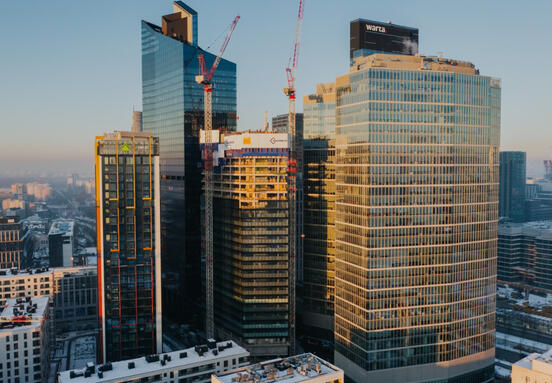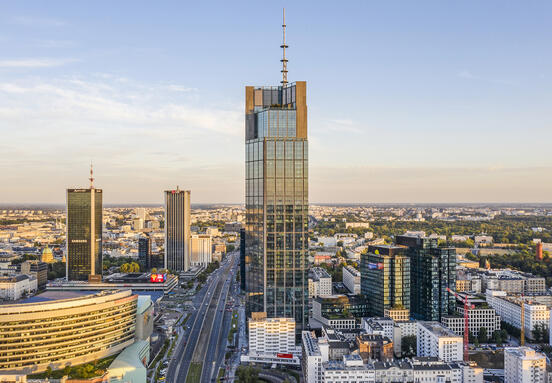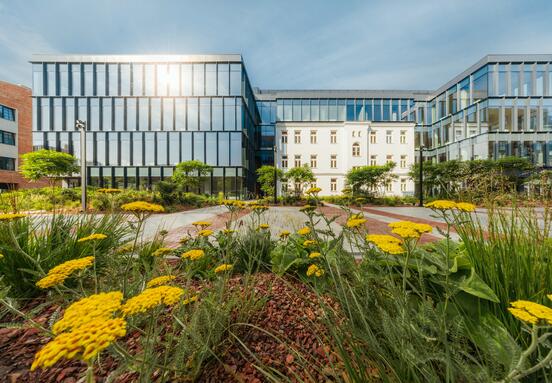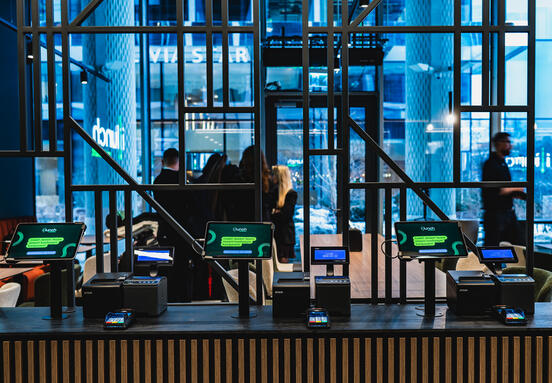According to CBRE experts, such a situation may lead to an increase in rents and a supply gap in 2023-2024.
In the first half of 2022, seven new projects were introduced to the office market in the capital, thanks to which such space in the city grew by 129,000 sq m. sqm The largest of them are Forest Tower by HB Reavis, and Intraco Prime and Skysawa II, owned by PHN. Despite the fact that the number of modern office buildings is constantly growing, the number of completed investments and space under construction does not keep up with the high demand. Tenants began to massively unlock their property decisions. The number of transactions in the financial sector is also growing rapidly in the capital, accounting for almost one-third of the demand. This puts pressure on the increase in rents, which we are already beginning to observe - emphasizes Paweł Dobrowolski, director in the office space department at CBRE.
There is currently 6.27 million sq m in Warsaw. offices. Over 260,000 sq m is under construction. sq m, which will be put into use by the end of 2024. It is not enough to meet the growing demand, which was exceptionally high in the first half of 2022. The vast majority (71%) of tenants' activity focused on the center of the capital.
The high level of demand in the first half of this year resulted mainly from the renegotiation of contracts (37%). One-third of the space leased is new lease agreements, and expansions 10 percent. Pre-lease of the emerging real estate took up 15 percent. all interest in offices in Warsaw. Currently, they are already 90 percent leased.
The amount of empty office space in the capital is falling. The vacancy rate is 11.9 percent, i.e. 0.3 pp. less year on year. The largest decrease was recorded in the central regions of the city. Currently, there are less than 748,000 vacant offices. sqm
Headline rents remain stable for the time being. In the best locations, they reach EUR 26 per sq m. in a month. However, declining office availability, rising costs of finishing and construction, and disruptions in supply chains will increase the cost of renting space to work in Warsaw. Incentive packages for tenants are also being reduced, which shows that the market is shifting towards the landlord market.
The low supply in the office market in the capital is due to several factors. First of all, developers encounter great difficulties in acquiring plots of land for construction. Their prices are getting higher and there is a lack of land in the center or in its close proximity, so an investment in this area often requires the demolition of an existing building, and obtaining a building permit can take years. Moreover, today we are witnessing the effect of two years of the pandemic, during which, out of caution, developers were not so eager to undertake new projects. Meanwhile, high demand for offices should continue, unless negative factors reappear, such as a significant economic slowdown, argues Paweł Dobrowolski.








